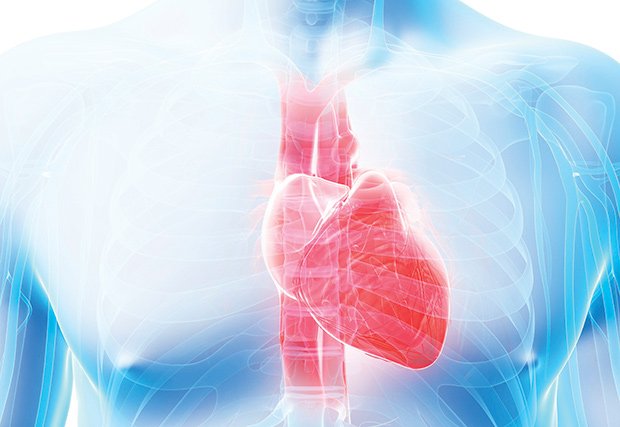"Northwest has always been my hospital"
 Kent Scroggins has been helping to save lives as a paramedic for more than 30 years. When his heart needed saving, he turned to the skilled team at the Heart Hospital at Northwest Texas Healthcare System.
Kent Scroggins has been helping to save lives as a paramedic for more than 30 years. When his heart needed saving, he turned to the skilled team at the Heart Hospital at Northwest Texas Healthcare System.
Scroggins became aware of his cardiac problem after having a stress test. Results uncovered two blocked arteries that needed to be treated right away.
He had a prior heart attack and suffers from coronary artery disease and cardiomyopathy, which makes it harder for his heart to pump blood. Because of this, his cardiologist, Alfred Chu, MD, recommended that he receive the Impella® heart pump to give his heart temporary help while he received two stents to open the blockages. “Being in the medical field, I know a little about it,” says Scroggins. “Every advantage you can get is a good advantage.”
The procedure went well and within 10 days Scroggins was back at work “going full-blast” as a flight paramedic for LIFESTAR air medical transport.
“I know Northwest is top-of-the-line everything at the Heart Hospital, and I know the people are just really good at what they do,” he says. “Northwest has always been my hospital. Even before I started working for them, my choice was always Northwest.”
Your Heart is in the Right Place at Northwest
“Patients can feel confident because our comprehensive cardiology program offers advanced technology delivered by a highly trained staff in a caring and compassionate environment,” says Robert Arno, MSN, RN, CNML, director of cardiovascular services.
The Heart Hospital at Northwest Texas Healthcare System is the leader in heart care in the Panhandle. Over 2,700 interventional cardiac procedures are performed each year. “Volume translates into experience,” says Arno. For patients, this can mean added reassurance for complex and potentially lifesaving heart care.
A vital service is treating coronary artery disease with percutaneous coronary intervention or PCI (also known as coronary angioplasty). This non-surgical procedure uses a catheter to open blockages in the arteries that can lead to heart attacks.
In some cases, patients may have weakened or compromised hearts that can make treatment more challenging. To provide more comprehensive and advanced care options, the skilled cardiac team offers technology like Impella®, the world’s smallest heart pump. This device may be used to provide minimally invasive, temporary support for patients with heart failure and/or advanced coronary disease. For example, it may be used for select patients to keep the blood pumping during an angioplasty procedure. Northwest has completed more than 120 Impella procedures since this technology was first introduced at the hospital.
Among other innovative treatments, Northwest is one of the first hospitals in the Texas Panhandle to offer the world’s smallest pacemaker, the Micra® Transcatheter Pacing System, for patients with bradycardia, a problem affecting the heart’s electrical system.
Bradycardia, which occurs when the heart rate is slower than normal, is one of a number of conditions addressed by electrophysiology (EP) specialists. “Our EP team is able to treat debilitating or life threatening arrhythmias with implantable rhythm monitors, implantable rhythm managing devices such as pacemakers, and ablations which have the potential of curing a chronic arrhythmia indefinitely,” says Arno.
The comprehensive cardiac program at Northwest also offers treatment for patients with peripheral vascular disease and acute limb ischemia, which can occur when there is limited blood flow to the legs and other extremities.
Heart disease is the leading cause of death for both men and women in the United States.* Through innovative and compassionate care, the team at Northwest is working to combat those numbers and help patients live longer, healthier lives.
*Centers for Disease Control and Prevention
Individual results may vary. There are risks associated with any surgical procedure. Talk with your doctor about these risks to find out if surgery is right for you.

